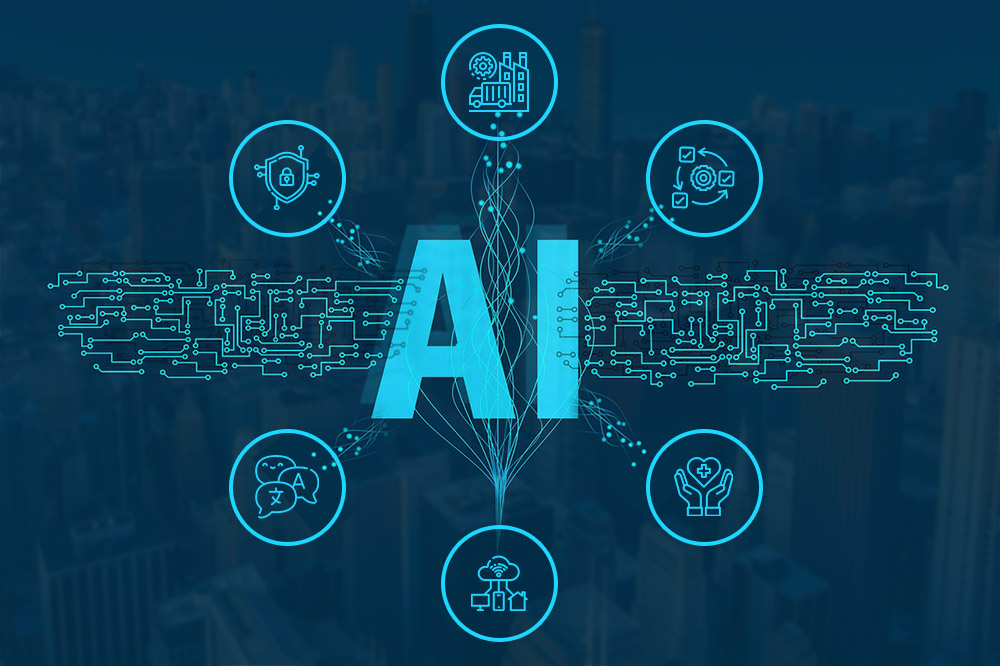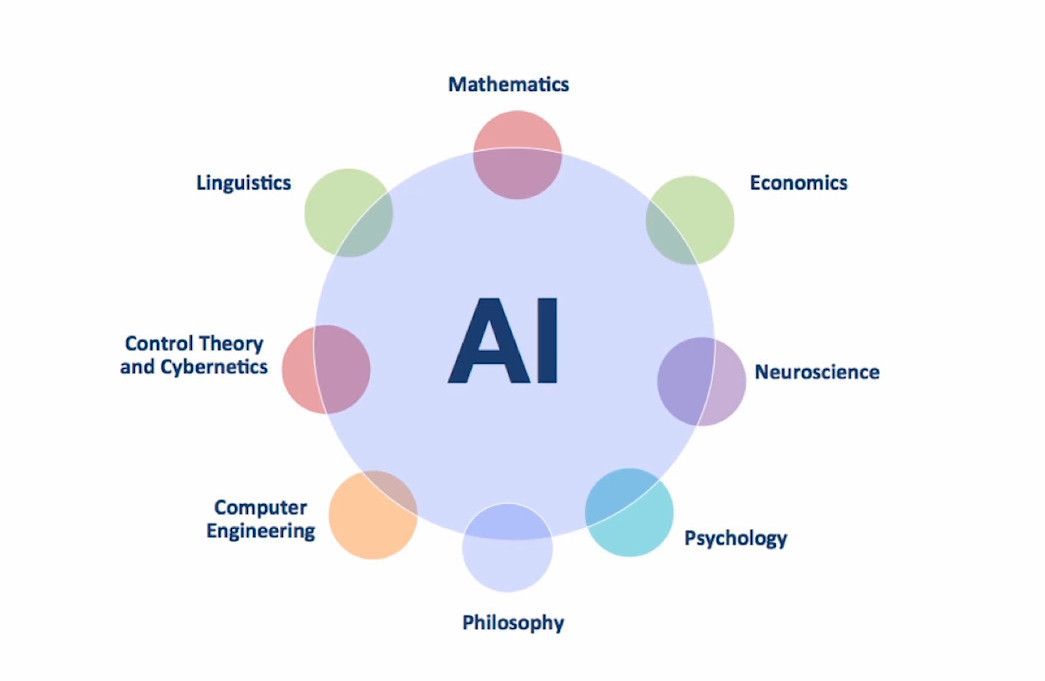AI and Its Future
Artificial Intelligence (AI) is developing at breakneck speed, transforming industries and redefining how we work with technology. From voice assistance powered by AI to automation and content creation, AI is promoting efficiency, productivity, and imagination in various arenas. As development in AI deepens, issues regarding its future effects on work, ethics, and human-AI interaction evolve.

In this article, we will delve into the new development in AI, its implications, and what might be ahead. So, let us begin!
1. AI-Powered Voice Assistants: More Natural Conversations
Voice AI technology has evolved significantly, revolutionizing the manner in which individuals communicate with devices. AI-powered voice assistants, including Siri, Alexa, and Google Assistant, have become a part of our everyday lives. The recent advancements in voice AI have enabled interactions to become more natural, engaging, and human-like.
Enhanced Context Understanding: AI is now able to interpret conversations more accurately, understanding emotions, intent, and context. This enables more natural and meaningful responses that don't sound so robotic.
Custom AI-Voices: AI can now generate one-of-a-kind voices from the ground up. This is especially beneficial for companies who need to craft personalized customer service experiences, virtual assistants, and even AI-created narrators for podcast and audiobooks.
Managing Interruptions and Multi-Turn Dialogues: Older voice assistants tend to have difficulty with interruptions or changing topics in the middle of a conversation. Current AI models can now easily accommodate these changes, allowing voice conversations to be more dynamic and fluid.
Influence on Daily Life: With improving voice AI, we can look forward to smarter and more customized interactions in smart homes, customer support, and assistive technologies for the disabled.
2. AI and Automation: Increasing Capabilities
AI is transforming automation through the minimization of human input in repetitive work. Companies and individuals are also gaining from the ability of AI to automate processes and enhance efficiency.
Integration with External Services: AI can now interface with web search engines, databases, and file management systems to fetch and sort information instantly. This has tremendous implications for productivity tools and automated workflows.
Task Automation: AI-based automation tools assist companies in managing routine tasks like organizing meetings, responding to emails, and data handling. This lowers the workload and enables employees to concentrate on higher-level and innovative areas of work.
Workplace Productivity: AI is also being implemented in workplaces to enhance efficiency. AI-based customer care systems, for instance, use chatbots to address queries, enabling human representatives to focus on complex tasks.
Everyday Applications: From AI-powered smart home devices that control lighting and temperature to AI-driven personal assistants that manage to-do lists, automation is making life more convenient.
3. AI in Business: Innovation and Efficiency
Businesses across industries are leveraging AI to gain a competitive edge, improve decision-making, and enhance customer experiences. AI’s ability to analyze data and predict trends is proving invaluable in marketing, sales, and business strategy.
Data-Driven Decision Making: AI can analyze large volumes of data to create insights, enabling businesses to make data-driven decisions. This involves customer behavior analysis, forecasting market trends, and optimizing inventory.
Personalized Customer Experiences: AI-based recommendation engines, such as those employed by Netflix and Amazon, scan the likes and dislikes of users to provide personalized content and product recommendations.
Automation of Repetitive Processes: AI streamlines repetitive business processes like financial projections, fraud prevention, and supply chain management, eliminating errors and boosting efficiency.
Case Study: Seefunnel: Seefunnel, an AI analytics company, assists companies in maximizing their sales and marketing campaigns. Through the analysis of customer behavior, Seefunnel offers insights that allow companies to make their campaigns more effective and boost conversion rates.
4. AI-Generated Video Content: A New Era of Digital Media
AI is revolutionizing content creation, and high-quality video production is becoming more affordable and accessible. AI-based video creation is changing the way industries such as filmmaking, advertising, and social media content creation are done.
AI-Generated Videos Based on Text Input: AI algorithms can now generate videos by just processing text descriptions. This technology is being utilized in news media, education, and marketing to create video content efficiently and quickly.
Improved Visual Effects and Animations: AI is enhancing the quality of animation by smoothing transitions and introducing realistic facial expressions and movements to digital characters. This is being used in video games, films, and virtual reality experiences.
Improved Storytelling: AI-based tools assist content creators and filmmakers in creating engaging stories by producing scripts, visual effects, and realistic characters.
Lower Costs of Production: Conventional video production is time-consuming and costly. AI-based solutions allow content creators to create high-quality videos at a fraction of the expense, providing professional-grade content to everyone.
5. AI-Based Avatars: Innovation and Ethical Issues
AI-based avatars are being extensively used in advertising, games, and virtual interactions. Although this technology provides new opportunities, it also generates issues related to authenticity and its effect on human laborers.
Virtual Influencers and AI Spokespeople: Businesses are employing AI-created avatars to embody brands, develop virtual customer support representatives, and even serve as social media influencers.
Threats to Human Content Creators: The emergence of AI-created content is causing concerns regarding job loss in sectors such as voice acting, graphic design, and online marketing.
Issues Regarding Authenticity and Trust: AI-synthesized endorsements cross the divide between artificial and real. Buyers can find it difficult to discern genuine and artificially created personalities, thus raising moral issues in advertisements.
The Need for Guidelines: In order to facilitate transparency and safe use of AI, measures and guidelines must be established that will safeguard buyers as well as creators of content against the possibility of misuse of AI-created avatars.
6. The Social and Ethical Consequences of AI
With AI advancing, it poses serious ethical and societal issues that need to be resolved.
Bias in AI Algorithms: AI systems are no more unbiased than the data used to train them. There have been instances where AI models are found to have racial, gender, or economic biases, resulting in discriminatory outcomes.
Privacy Issues: Surveillance using AI, facial recognition, and data collection pose privacy problems. Governments and organizations must implement measures to ensure the protection of user data.
Employment Effect: While AI is generating new job opportunities, it is also replacing many of the traditional ones. Reskilling and upskilling workers will be key to adjusting to the evolving employment landscape.
AI in Decision-Making: AI is increasingly being employed in high-stakes domains such as healthcare, finance, and law enforcement. It is vital to ensure accountability and fairness when AI makes decisions to prevent unwanted harm.
AI is rewriting the future like never before, making technology more intelligent, more efficient, and more interactive. But with grand leaps come grand challenges that have to be managed with care.
As things go forward, it will be important to be aware of how AI is getting better and becoming more ethical. The AI era is already going strong, and its effects on society are only just starting to be felt.
